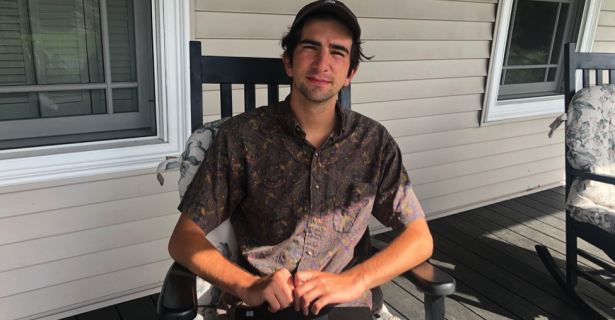After arriving home from my two-week study abroad, I was lost for what to do with myself. Sent back before the program even began, the next six months of my calendar – March through the start of school in September - were suddenly very open; the only scheduled event was my mandatory quarantine beginning just after landing at JFK.
I spent a good month and a half under strict lockdown ambling about my home, attempting to plan out some semblance of next steps, but regularly finding only disappointment as the losses from the pandemic mounted. Reluctantly I added two online summer classes to the docket, necessary if I wanted to graduate on time, but this still would only occupy six weeks of those long six months. Despite the budding summer, a deep winter snow of boredom slowly set itself in.
A welcomed yet unexpected email from the IGL provided a small lifeline from that depressive drear; online internships through IGL alumni for those suddenly without summer plans – a large constituency I am sure. Safer than stocking shelves at my local grocer and (forgive my assumption here) a tad bit more intellectually stimulating, I scrolled through the many, engaging listings which advertised administrative work for the island nation of Palau or conservation research for the Amazon. Eventually, I decided on a project lead by a PHD candidate at Berkeley, Elizabeth (Biz) Herman. Her research concerns the psychosocial, political, and economic impacts of violence, pulling from literature in international development, public health, political science, and more. As an intriguing extension of some of my previous experiences: work in a refugee camp through the IGL on the Greek island of Samos and a separate Tufts fellowship to Rwanda focused on genocide and its legacy, her interdisciplinary focus impressed me, and I was excited by such an opportunity.
Biz and Justine Davis, fellow PHD and thesis partner, exceeded my expectations of virtual work. The main project constituted compilation of a literature review and eventual metanalysis. To this end, the other interns and I read and coded many articles. Not only fascinating, many of these studies referred directly to my past experiences – the gacaca courts’ efficacy in Rwanda, refugee sentiment in Europe - contextualizing them in the academic perspective. In pouring over such dense journals so frequently, my reading comprehension greatly improved, and the varied disciplines of each pushed my mentally flexibility. Biz and Justine were attentive and available whenever I had questions – something I cannot say of other past virtual internship experiences- and I appreciated their clear and understanding expectations.
In addition to work on their project, they encouraged us to take on a study of our own creation for which they provided outstanding help in teaching structure and protocol. In previous research experiences, I have found that my principle investigators take for granted that I know things like research design or organization of a manuscript, and if I did not, the expectation is I learn organically on the job. While this has its benefits, one runs the risk of misinterpretation and often I found I lacked the language to adequately communicate a topic even if I intuitively knew what it was. Biz and Justine gave us those formal communication skills through pedagogical research education. Every week we would meet and go through a power point discussing how to conduct and write your own study; while I had been introduced to many of the concepts through various classes and previous research, having that information clearly disseminated helped crystallize in to language my previous learning. I now find in myself a new confidence to discuss study design, protocol, and analysis. While I have unfortunately put aside my own study for now as I prepare for the stress and mental struggle of the coming semester (ironically, I was broadly researching the mental health impacts of COVID-19), I hold that learning to be invaluable. I know this experience will aid me in whatever field I eventually pursue, both in comprehension and creation of research.
Certainly, this was the strangest summer I have yet had the privilege of experiencing. To a background of protests, pandemics, and politics, I spent quite a lot of time shuffling around my home, or in my childhood room, addressing the computer for a wide variety of needs from entertainment to education to social connection to work. I cannot say I will look back on summer 2020 with net-fondness. No amount of beautifying, hindsight could whip these memories into nostalgic shape, however, Biz and Justine have made it all that much easier. Their understanding, care, and guidance means so much in this unsettling and difficult time. While I only got their 2D versions this time around, I truly hope to meet them someday in earnest and thank their 3D-selves for the unique, important mentorship fostered under these stranger-than-fiction circumstances.
Alumna Elizabeth Herman provided this remote internship

